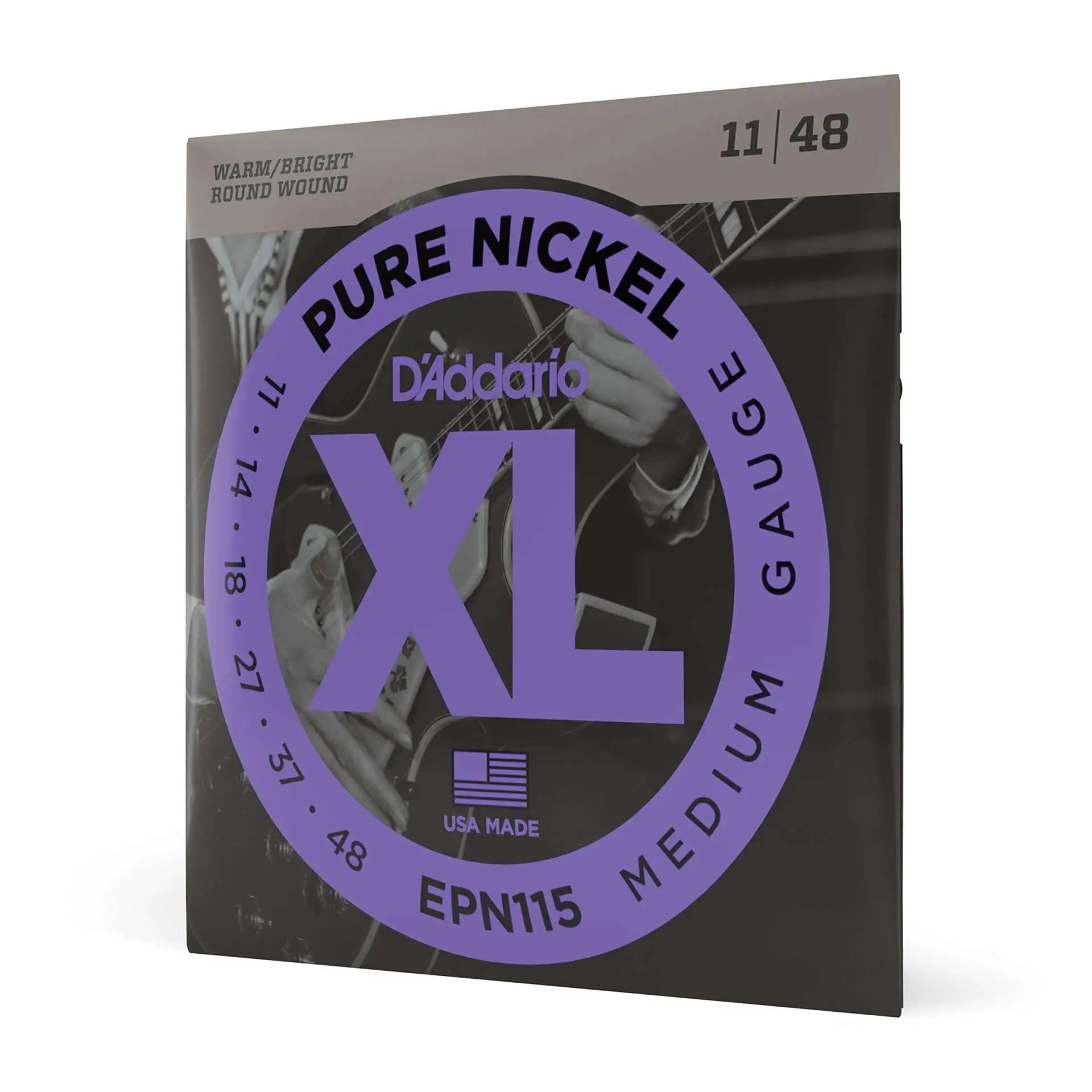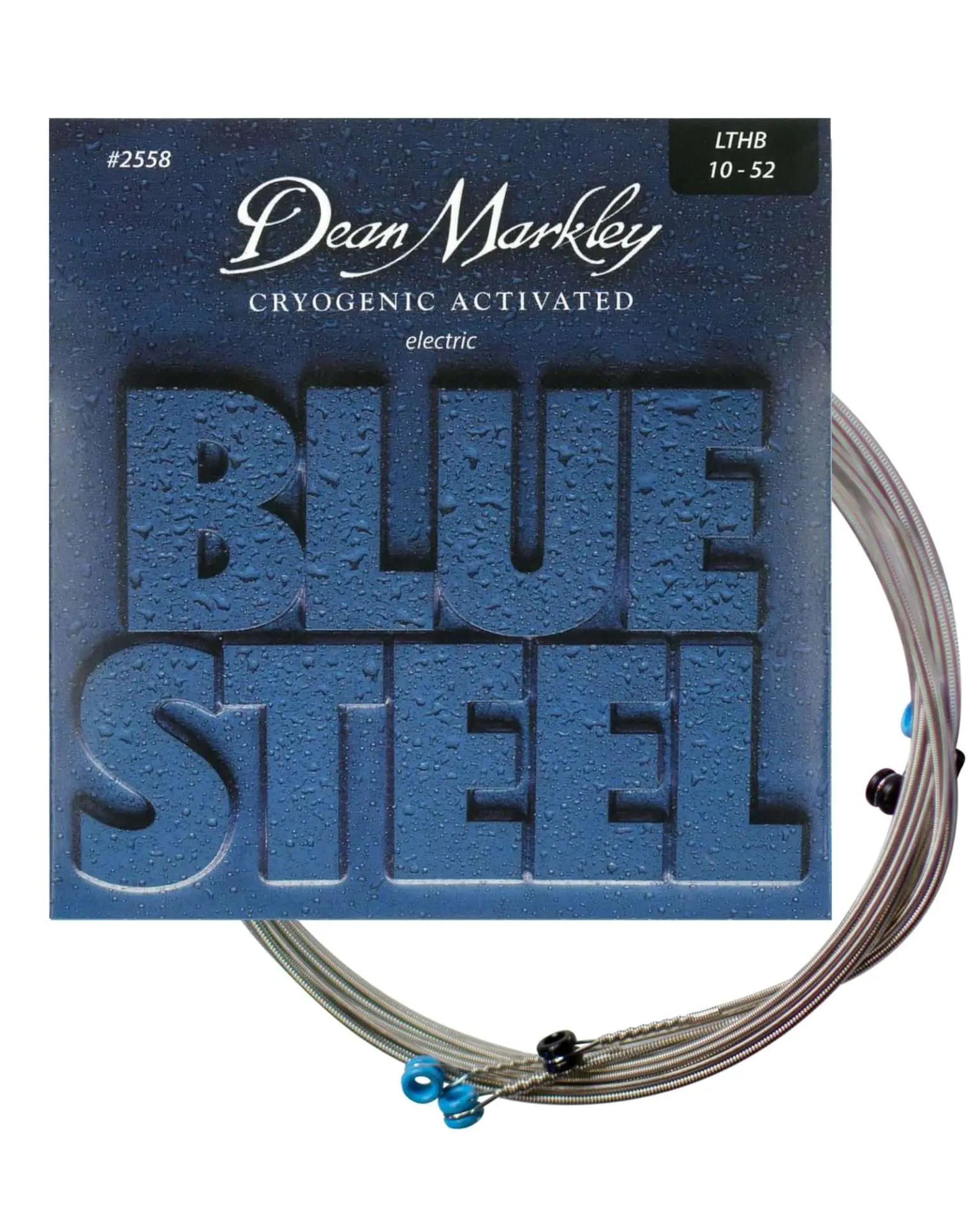Guitar strings serve as an essential link between a musician’s touch & the instrument’s ability to articulate sound. They are crucial in defining tone, sustain, & playability. As a blues guitarist, the quest for the right strings is a journey toward finding that perfect expression of soul & character that blues music embodies. Whether you adhere loyally to a favored brand or constantly seek out different nuances in tone through experimentation, the importance seeking the best guitar strings for Blues cannot be overstated.
With an array of materials, gauges, and technologies, each set of strings offers distinctive qualities. The gauge or thickness of the strings substantially influences both the sound and the feel under your fingers. Heavier strings typically provide a fuller, richer tone with more sustain, while lighter strings are easier to bend and may allow for quicker playability. Material choices such as nickel-plated steel or pure nickel can affect the warmth and crispness of the sound, complementing different aspects of blues tonality.
The construction and winding of strings are also factors that shape their responsiveness and tone. For instance, how the core wire is wrapped with the outer wire in roundwound or flatwound strings makes a noticeable difference. The longevity and stability of tuning, greatly attributed to the string construction and coating technologies, are practical considerations when choosing your strings.
When selecting the best strings for blues, consider how they complement your playing style and guitar setup. Pay attention not just to the promotional highlights but to the nuances each string type offers in terms of gauge, material, construction, and winding. By focusing on these aspects, you can find strings that enhance your expressive capabilities on the guitar, ensuring a tone that resonates with the emotional depth of the blues. In our exploration, we’ve tested and compared a variety of strings, analyzing how each component contributes to the authentic and soulful sound that blues players strive for.

Top Picks for Blues Guitar Strings
Our extensive search for the finest guitar strings tailored to the blues genre has culminated in a curated selection of products. These strings stand out for their ability to deliver the soulful tones and expressive bends that blues players crave. With an eye on quality and playability, we have narrowed down options that cater to both seasoned guitarists and those just starting to explore the blues. The following list represents our top recommendations for you to achieve that classic blues sound.
D’Addario 11-48 Pure Nickel Strings

We recommend these strings for anyone chasing that classic blues tone with a modern edge.
Pros
- Vintage tone that captures the essence of the ’50s blues sound
- Durable hex-core construction assures a consistent, reliable play
- Made in the USA, ensuring high manufacturing standards
Cons
- May lack the brightness some modern players prefer
- Not the cheapest option available
- The pure nickel might feel different if you’re used to nickel-plated
After threading these strings onto my guitar, the first strum felt like a step back in time. The rich and warm tonal quality was like hearing vinyl play through an old tube amp; pure nostalgia. There’s a clear distinction when you play those classic blues riffs—the grooves just seem deeper, more authentic.
Playing through a few licks, the strings responded with a punchiness that is both crisp and rounded, never tinny or harsh. Bends felt smooth under my fingers, and vibratos sustained with a sweet, singing quality that resonates with the skill of the blues greats.
Our long jams could be tough on strings, but these held up well. The resilience was impressive; they stayed in tune through extended play and maintained their clarity. Sure, there are brighter, edgier strings out there, but for our blues tunes, these strings provided the soulful sound that our music demanded.
DR Pure Blues 10-46 Strings

We believe these strings offer an authentic blues experience with their vintage tone and enhanced playability.
Pros
- Authentic vintage tone
- Exceptionally smooth playability
- Durable with less fret wear
Cons
- May not suit modern playing styles
- Pricier than some alternatives
- Specific gauge set may not be ideal for all players
After restringing my guitar with the DR Strings Pure Blues, I immediately noticed the warm, resonant tones that filled the room. Their old-school construction indeed channels that sought-after blues sound with an appreciable depth. The responsiveness these strings provide under the fingers makes for expressive play, especially during bends and vibratos.
During extended jam sessions, I’ve found these Pure Blues strings hold their tuning admirably, a testament to their build quality. Even after hours of playing, the strings maintained their brightness and tonal character. Moreover, I was pleased to find that the smoothness of these strings means less abrasion on both my fingertips and the guitar’s frets.
In conclusion, those searching for that classic blues vibe would be hard-pressed to find strings that better capture the spirit of the genre. While they may come at a slightly higher price point, the investment seems justifiable when considering their longevity and the tonal richness they bring to the table. It’s no wonder these strings are favored by renowned blues musicians.
Dean Markley 10-52 Blue Steel Strings

We find Dean Markley Blue Steel strings ideal if you’re after that vibrant tone and durability to sustain your blues play.
Pros
- Exceptional longevity, resisting breakage
- Crisp, clear tone suitable for various styles
- Remain in tune, providing hassle-free maintenance
Cons
- May feel too bright for traditionalists seeking a warmer blues sound
- Medium gauge may not suit all playing styles or preferences
- Higher price point than some competitors
Strumming the blues on my guitar fitted with the new Dean Markley Blue Steel strings brought an immediate realization of their robustness. The cryogenic treatment these strings undergo isn’t just a marketing gimmick; you can feel a stark difference in their resilience, especially during aggressive bends and heavy playing sessions.
Transitioning from grimy riffs to soulful licks, the strings supported a full spectrum of bluesy tones. They produced a sustain that held notes in a warm embrace, which is just what any blues guitarist craves. Tuning stability was another plus, with the strings staying perfectly pitched session after session, likely a nod to their precise core-to-wrap ratio and quality materials.
The playability also stood out. Whether you’re running through a quick scale or digging into a slow blues turnaround, the strings responded with smooth, consistent performance. They seemingly invited my fingers to glide over them, making for an expressive and enjoyable playing experience.
This was just a brief encounter, but they’ve left a lasting impression with their sound and durability. The Dean Markley Blue Steel strings seem crafted with the discerning blues player in mind, promising to be a mainstay on my guitar for many sessions to come.
Ernie Ball 10-46 Regular Slinky Strings

We believe these Ernie Ball strings are a reliable choice for blues guitarists seeking a well-balanced tone with a comfortable playing feel.
Pros
- Offer a bright, balanced tone suitable for blues
- Maintain tuning stability and durability
- Widely used by professionals, ensuring credible quality
Cons
- May feel too light for players used to heavier gauges
- Nickel plating might not suit those with allergies
- String life may vary depending on playing intensity
When you string up your guitar with Ernie Ball Regular Slinkys, you’ll immediately notice the classic, clear sound they bring to the table. The balanced tone really shines through during soulful blues bends and vibrato.
After a few licks and riffs, it’s evident why these strings are trusted by legends – they offer consistent performance. They bend with ease, fostering expressiveness essential for blues playing.
These strings carry vibrations well, offering sustain that enhances the emotive quality of blues solos. Despite hours of playing, they hold their tuning, allowing you to focus on your performance.
Buying Guide
Material & Tone
When choosing guitar strings for blues music, we consider the material as it directly affects tone and playability. Common materials include nickel-plated steel, pure nickel, and stainless steel, each offering distinct tonal qualities suitable for the warm, expressive nature of the blues.
Gauge & Tension
The gauge, or thickness, of the strings is crucial. Thicker strings provide a fuller, richer tone, essential for a blues sound, but increase tension on the neck. We might need to downtune a half step or two to maintain playability.
String Coating
We look at string coatings, which can extend the life of the strings by protecting against dirt, oil, and corrosion. This helps us preserve the string’s tone and feel over time.
Core & Winding
The core of the strings generally comes in two types: hex-core and round-core, contributing to the string’s flexibility and tension. We also consider the winding method, flatwound or roundwound, affecting the string’s texture and the ease of bending notes.
| Feature | Effect on Guitar Strings |
|---|---|
| Material | Affects tone, as different materials can produce brighter or warmer sounds. |
| Gauge | Influences feel and tone, with thicker gauges providing a beefier tone and more resistance, and thinner gauges offering a lighter feel and brighter sound. |
| Coating | Extends string life by protecting against corrosion, dirt, and wear, potentially altering the feel and reducing finger noise. |
| Core Type | Impacts tension and flexibility of the string, with hex cores typically offering more tension and round cores providing a slinkier feel. |
| Winding | Affects playability and tone; tighter windings may offer more sustain and a brighter tone, while looser or different types of windings can affect the string’s texture and sound. |
By examining these features carefully, we can select strings that not only suit our individual playing style but also the specific nuances and expressiveness that blues music demands.
